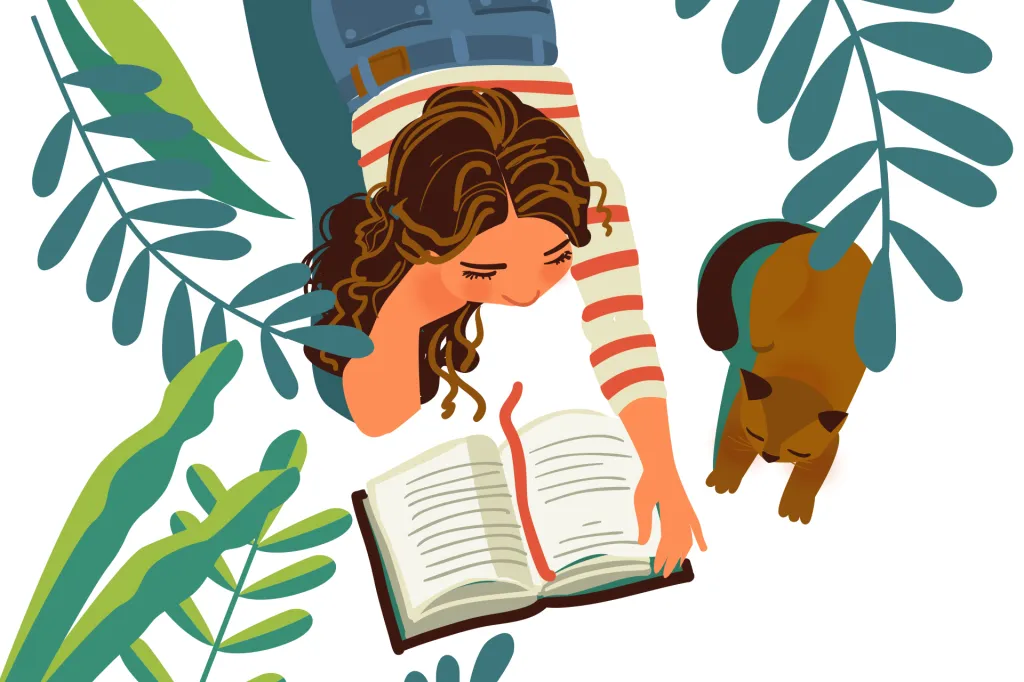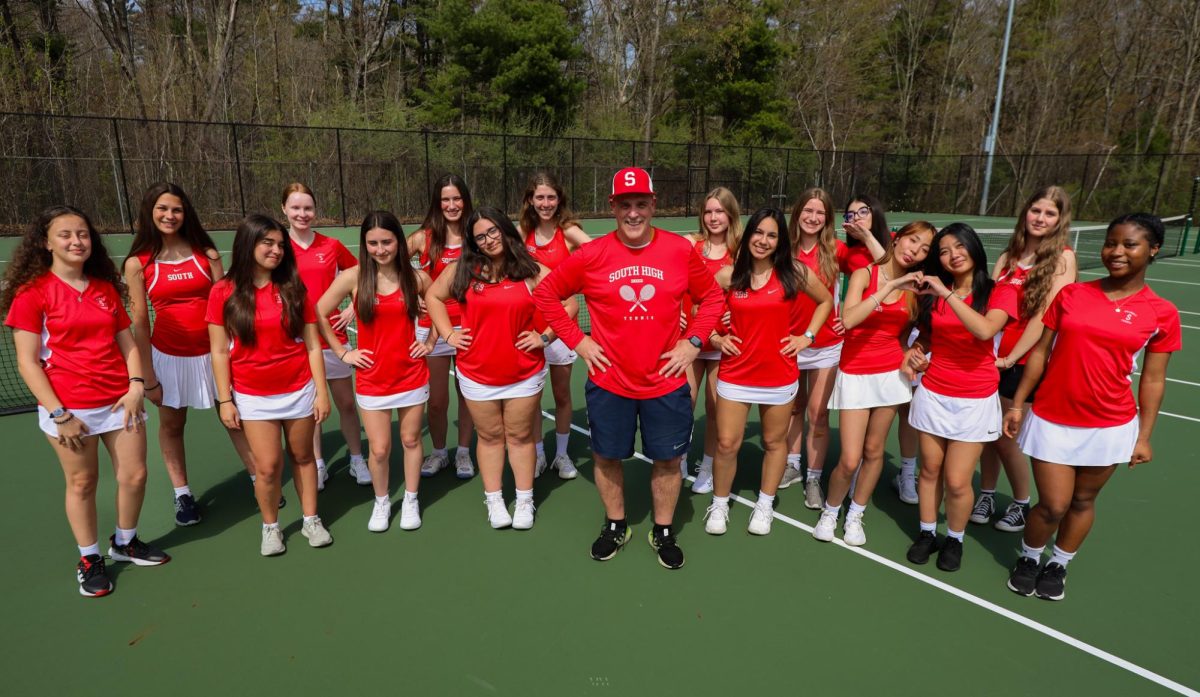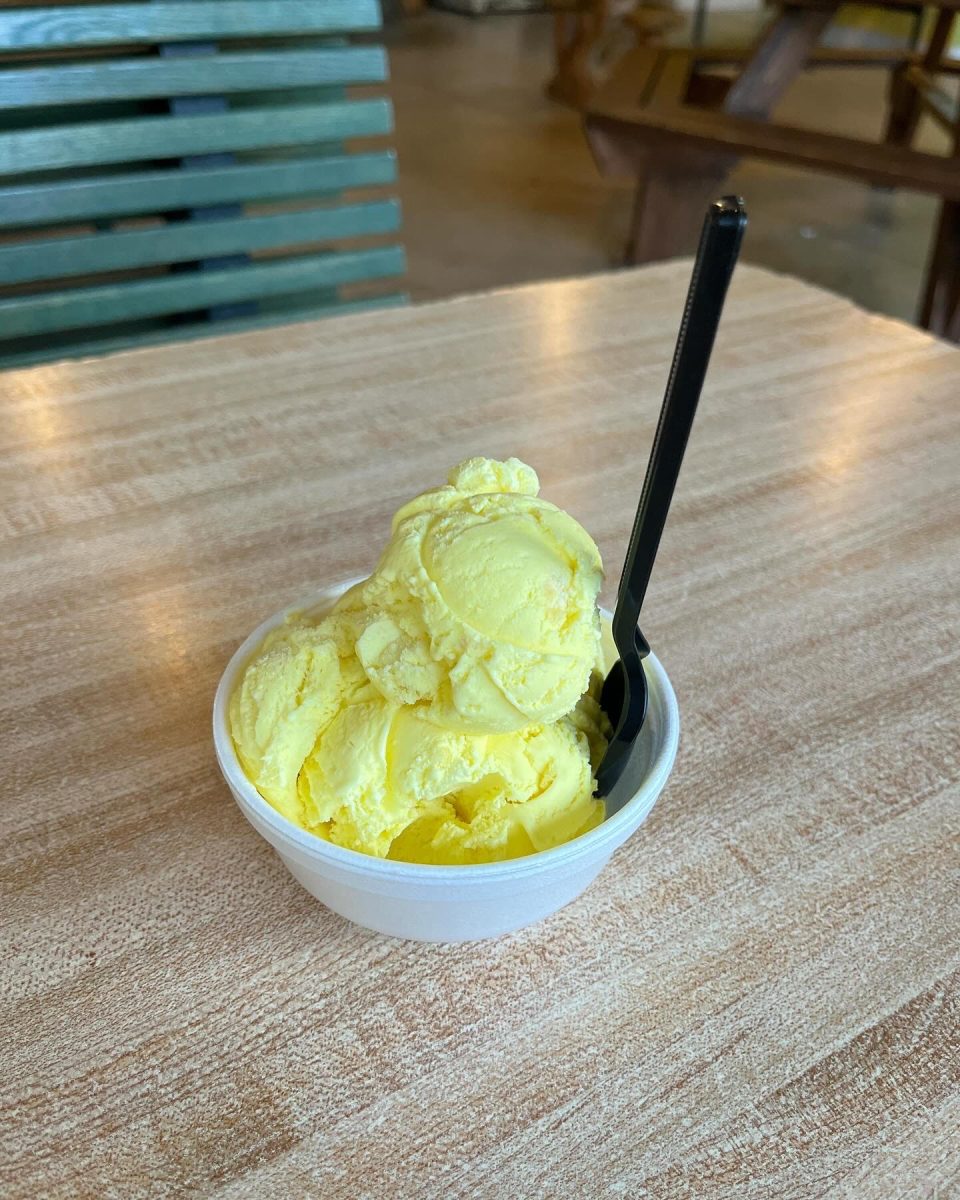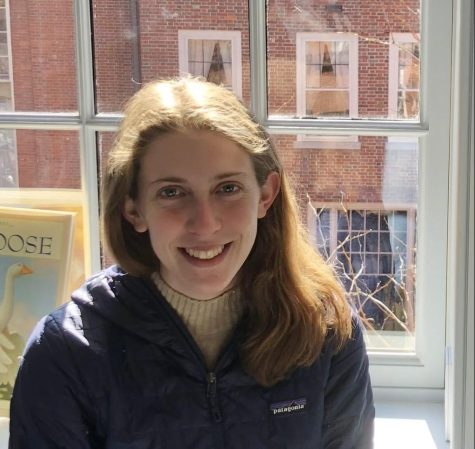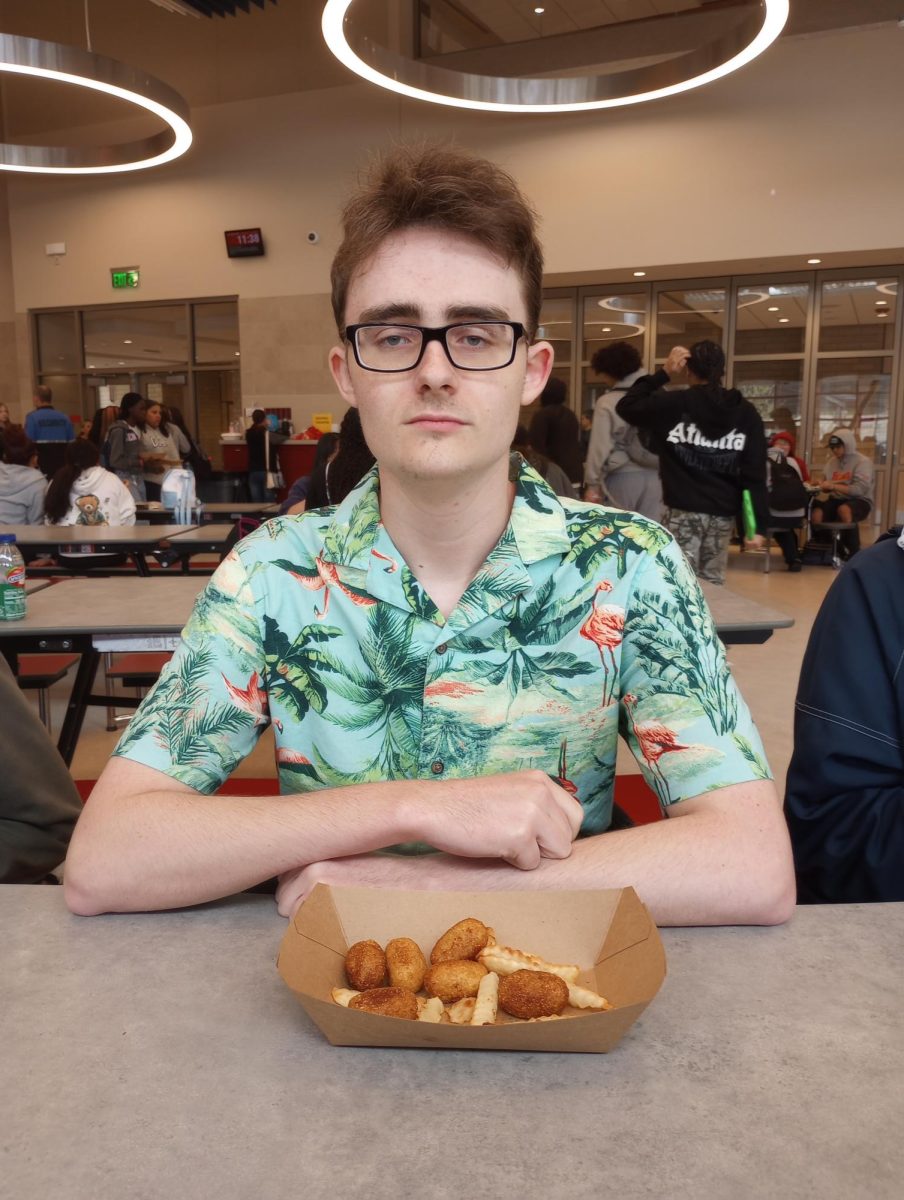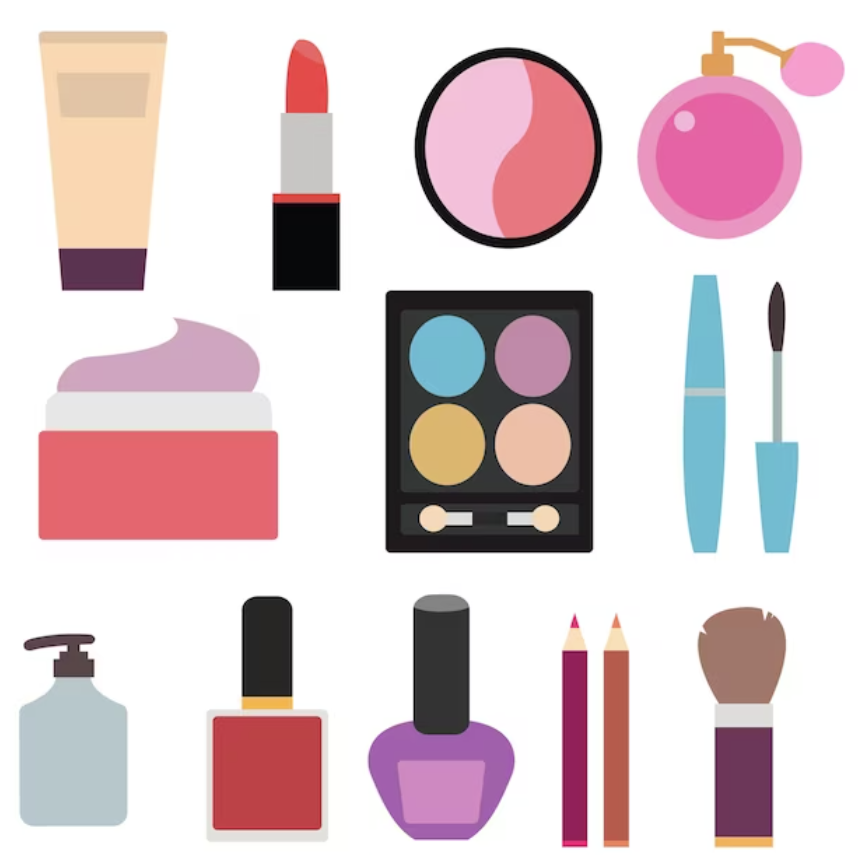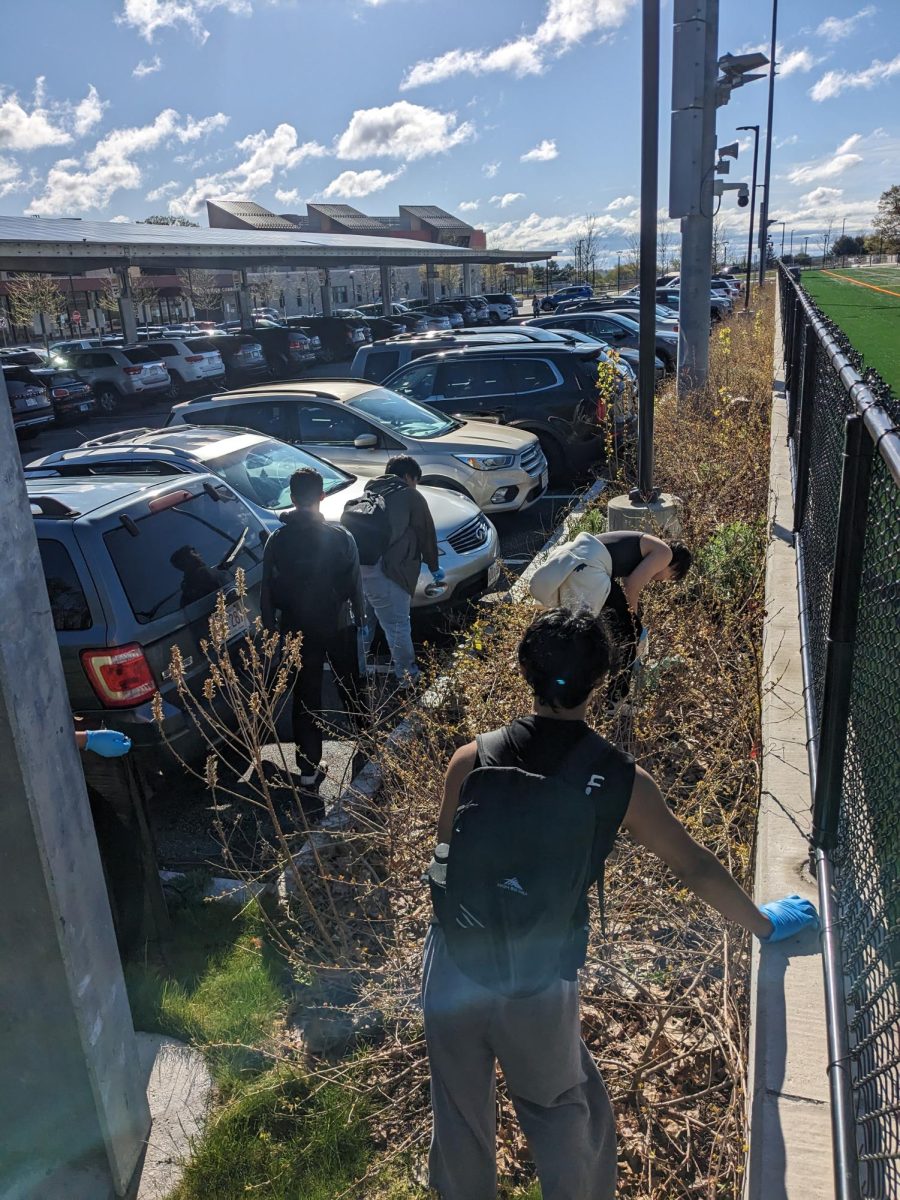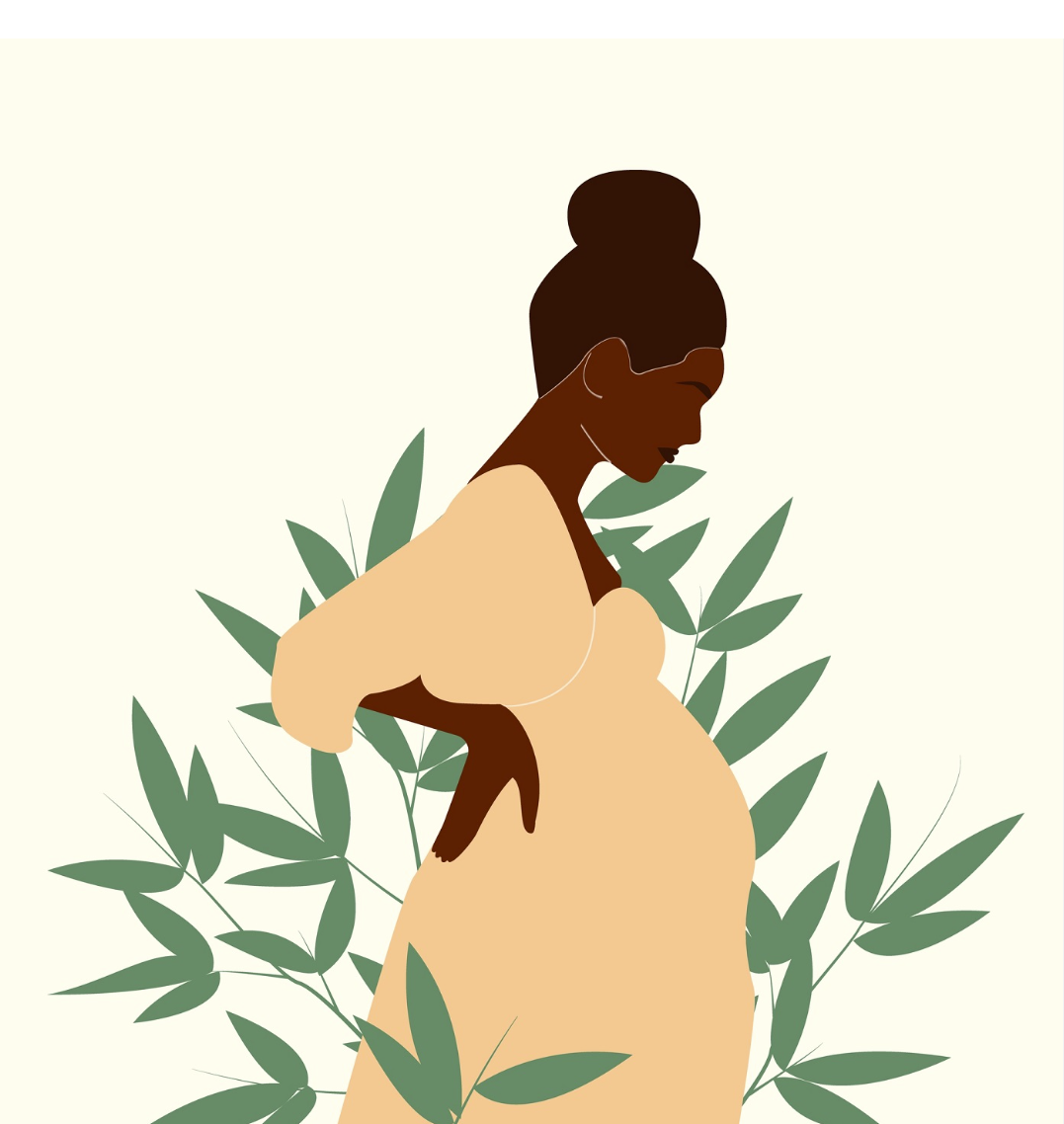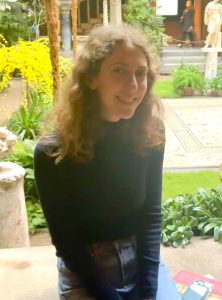
I like December.
After Thanksgiving, my parents and I bring out our shiny brass menorahs—one from my dad’s Bar Mitzvah, one in the shape of the word shalom (meaning “peace”). Our ever-growing collection of dreidels spills onto the kitchen table—sports dreidels, pretty Judaica ones, and plastic ones from Hebrew school—ready to be spun as I do homework or talk to my mom while she makes dinner.
Then, one weekend, we’ll go pick out a Christmas tree. We haul it inside and pile it with ornaments—mesmerizing multicolored glass, little fabric people, my five-year-old art projects. On top goes a dreidel. We hang stockings, and Santa comes down the chimney.
I never thought it was strange—rather, fun—that we celebrated both Hanukkah and Christmas. My mom was Christian, my dad was Jewish, and I was Jewish. Why would that be weird? But when I mentioned it to my elementary school classmates, many of them assumed I was “half-Jewish,” or “half-Christian.” How can you be half of something? It’s either part of your identity or not, and I did not relate to Christianity.
In ninth grade, one of our out-of-town family friends had his Bar Mitzvah—I’d had my own Bat Mitzvah in seventh grade. At my friend’s Bar Mitzvah, my parents and I were supposed to recite an aliyah (a blessing for the Torah reading). The rabbi wouldn’t officially call my mom to do the aliyah, because she wasn’t Jewish. I understood that. But a week before the service, I learned she wouldn’t call me, either, just because my mom wasn’t Jewish, just because some Jews still believe Judaism must be passed down matrilineally. I was stunned.
My parents tried to console me. It doesn’t matter, it’s just a stupid rule they have, they said. She knows you’re Jewish. We know you’re Jewish. You know you’re Jewish. Ultimately, the rabbi did call me for the aliyah—I never heard why. But it didn’t feel the same. How could I be Jewish if another Jew didn’t think I was? How could someone strip me of my identity like that? What did I have to prove?

I loved Hebrew school, volunteered to teach kindergarteners at temple, helped out at holiday events. I was why my parents started going to synagogue on the High Holy Days, why we made hamantaschen and rugelach. Of the three of us, only I could read Hebrew; I taught them the prayers. How could I be more Jewish than that?
We know how you’re feeling, my parents would say. Really, it doesn’t matter what they say. But that didn’t help. They didn’t know how it felt to be invalidated by a leader of my own religion—and by every misinformed peer who has said, You’re only Jewish if your mom is, right? At those words, my throat would clench. No, I would choke out, sick of the same conversation.
Over time, something changed.
I don’t know what. But I realized that I’m not an atheist, I’m not going to convert to Christianity, and I’m going to keep eating challah and correcting my parents’ Hebrew. I’m Jewish.
Still, this doesn’t mean my Jewish identity is completely “solved.” How do I feel about celebrating Christmas? Sure, I celebrate agnostically, but am I comfortable with carols about Jesus? Beyond that, those matrilineage-obsessed people still hurt me. How can I deal with that?
Maybe I’ll never know. But I want to share my experience of eating chocolate Easter bunnies and playing with crawling, toy Passover locusts. And I want to listen as my peers describe attending church on Ash Wednesday, or celebrating Eid or the Lunar New Year.
So, when December and Hanukkah come, I’ll celebrate. After all, the Hanukkah story is all about the Maccabees holding their Jewish identity close.
And maybe I’ll decorate a tree, too.
Here’s What Anya Said About Her Essay
I wrote a couple drafts of this essay. In fact, at first, my college essay was about something else entirely; over the summer, I wrote a draft about my connection to the JCC (where I have worked as a lifeguard in high school and where I have attended programs all my life). But as I reread that essay, I found I didn’t really like it. It wasn’t cohesive, and more importantly, it wasn’t about something that defined me. Yes, the JCC is important to me, but it isn’t at the heart of who I am.
When I wrote a new essay in the fall (this essay), it came more easily to me. I had a lot of thoughts swirling around my head, and more importantly, I was passionate about what I was writing about. This doesn’t mean it was easy to write, especially the first draft. But I sat down and told myself, It doesn’t matter how bad it is at first – I’m just going to write it. By brain-dumping, I was able to get all my ideas out, and I could organize them from there. Then, I could work with peers and teachers (like Ms. Ledoux) to clarify my ideas and add more detail to the essay.
Ultimately, I can’t imagine having written about anything else. The ideas of religion, upbringing, and family define who I am and how I live my life – they are something that I really, really care about. By writing about this, I was able to just reflect on myself and tell my story. And, I didn’t feel like I was pushing an agenda (saying, for example, I’ve done X, Y, and Z clubs, or taken certain classes), which I felt would detract from the significance of the essay.
So that is my advice for you. Take some time to think about the things that have shaped you – people, places, ideas. And then just write. Don’t worry if it doesn’t come together at first – you can always revise and edit later. As long as you have an idea you’re passionate about, an idea that feels true to you, you can make it work.

